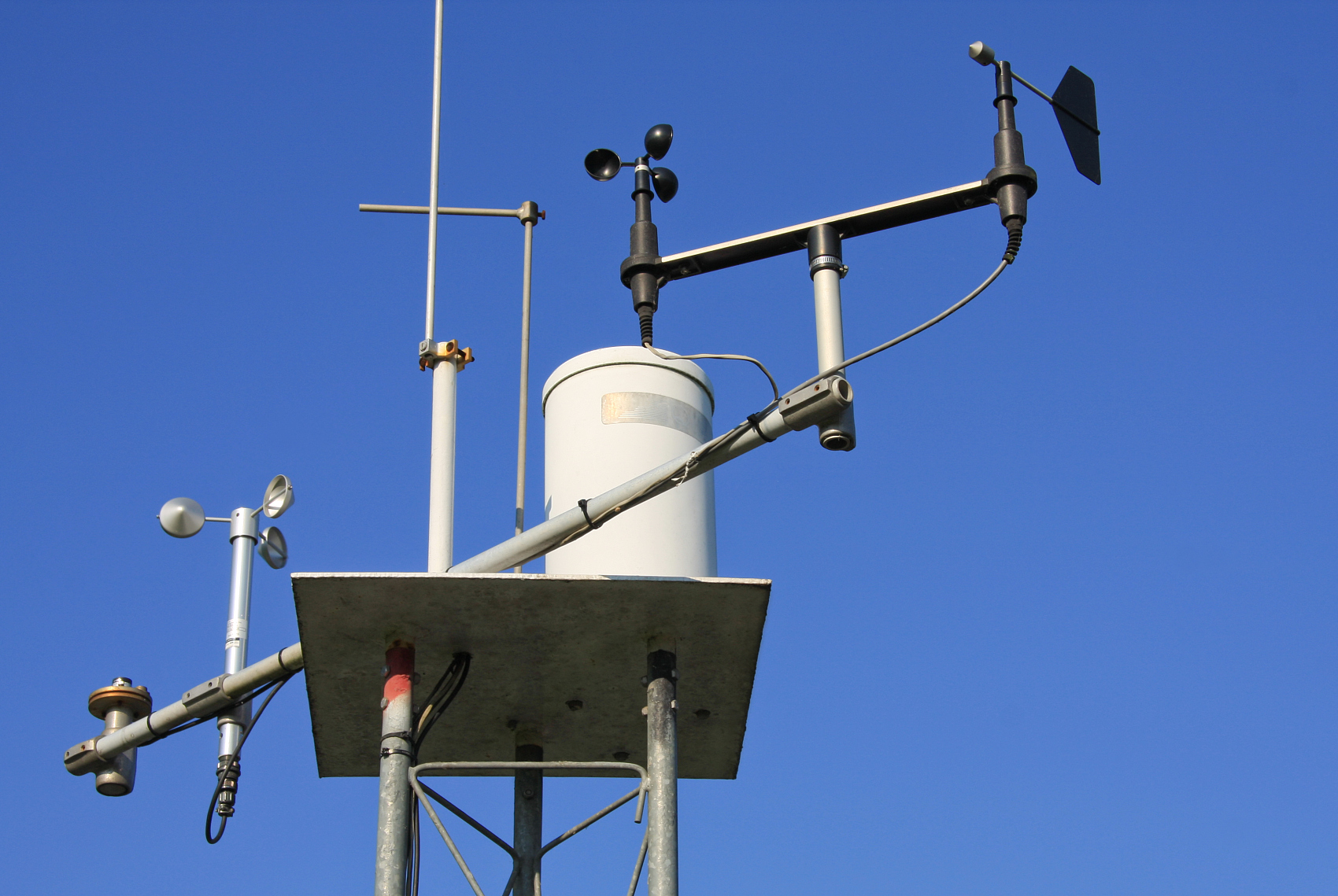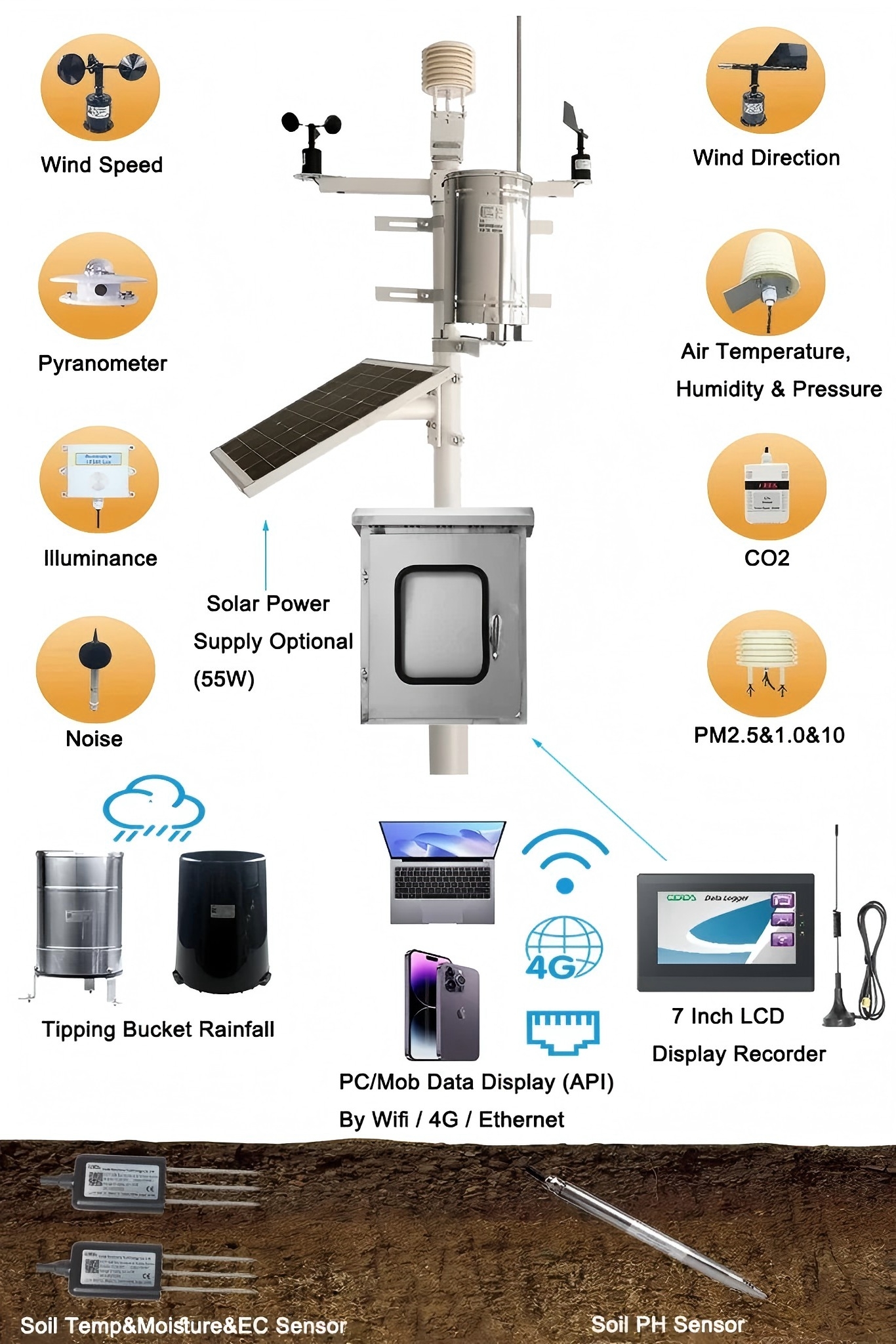Many people are becoming more interested in weather monitoring. This includes hobbyists who want to track local conditions. It also includes professionals in fields like agriculture, construction, and environmental monitoring. For beginners, finding an affordable and easy-to-use weather station can seem like a challenge.
Many options provide important features for accurate and reliable weather tracking. Most importantly, they are economical.
In this piece, we will discuss the features that make a weather station ideal for novices. We will also highlight industries that often use weather stations. Finally, we will show how Coda Sensor solutions can improve your monitoring system.

For beginners, selecting a weather station that is easy to use, accurate, and cost-effective is key. A basic weather station should give important data on local weather. It should also be easy to install and use. Here’s what to consider when looking for a beginner-friendly weather station:
Ease of Installation: Look for weather stations that are wireless and can be easily set up with minimal hassle. Wireless models that sync with mobile apps allow for quick installation and remote access to your weather data.
Essential Weather Parameters: A good beginner weather station should provide basic metrics, including:
Temperature: Monitoring both air and soil temperature can be useful for gardening, farming, and outdoor activities.
Humidity: Understanding humidity levels can help with gardening, climate control for indoor spaces, and outdoor event planning.
Wind Speed and Direction:
Knowing wind speed and direction is crucial for activities like sailing, flying drones, or understanding wind energy.
Rainfall: A rain gauge allows you to track rainfall, which is important for irrigation management and flood risk monitoring.
Affordability:
Newcomers frequently prefer not to invest a lot of money initially. Look for affordable weather stations that offer good value. This is especially important if you are just starting with weather tracking.
Accuracy and Reliability:
Beginner stations may not have all the advanced features. However, they should still provide reliable and accurate data for basic weather assessments.
Using an affordable weather station is a great way to learn about local weather patterns. It offers many advantages, including:
Real-Time Data: Beginners can get immediate access to weather conditions and monitor how they change throughout the day.
Decision-Making: Accurate data helps in making informed decisions, whether for outdoor activities, farming, or event planning.
Weather stations have applications in several industries, helping businesses and professionals make data-driven decisions. Here are some industries where weather stations are commonly used, and how they benefit from accurate weather monitoring:
Agriculture
Use Case:
Farmers use weather stations to monitor local weather. They track temperature, rainfall, humidity, and wind speed. These factors are important for crop health. Weather data helps optimize irrigation, prevent crop diseases, and predict frosts or drought conditions.
Benefits:
Monitoring weather patterns helps with better irrigation planning, accurate pest control, and early warnings for extreme weather. This can reduce crop damage and increase yields.
Construction
Use Case: Construction sites rely on weather data to ensure safety and optimize operations. Measuring wind speed accurately is important for crane operations. Temperature and humidity data help avoid problems like concrete curing issues and health risks for workers in extreme heat.
Benefits: Real-time weather data helps avoid weather-related delays, ensures safety on construction sites, and improves overall productivity.
Environmental Monitoring
Use Case:
Environmental monitoring uses weather stations to track air quality, temperature, humidity, and precipitation, helping to assess environmental conditions and their impact on ecosystems. This is important for monitoring pollution levels, forest fires, and natural disasters.
Benefits: Understanding weather patterns allows organizations to predict environmental hazards, track climate change effects, and optimize conservation efforts.
Renewable Energy (Wind and Solar)
Use Case: Wind and solar energy companies rely on accurate weather data to optimize energy production. For wind energy, tracking wind speed and direction helps determine the best locations for turbines. For solar, weather stations can track solar radiation and temperature to optimize panel efficiency.
Benefits: Weather stations help optimize energy generation by ensuring renewable energy systems operate under the most efficient conditions.
Event Planning and Outdoor Activities
Use Case: Event planners and outdoor organizers use weather stations to ensure safe and enjoyable events. Tracking wind, temperature, humidity, and rainfall helps prevent issues like heavy rain or dangerous wind conditions.
Benefits:
Real-time weather data helps with event planning and decision-making. It ensures outdoor events run smoothly, even with changing conditions.
Weather Research and Forecasting
Use Case: Research institutions and meteorological organizations use weather stations for long-term data collection. These stations measure various atmospheric variables to improve weather forecasting and understand climate trends.
Benefits:
Collecting accurate data helps create better forecasting models. This improves climate predictions and aids policymakers in handling weather-related challenges.

Affordable weather stations are great for starting weather monitoring. As you gain experience and need more specific data, you might want to upgrade your setup with advanced sensors.
Coda Sensor provides high-quality sensors that can fit into your current weather station. This provides you with better data for many uses.
Coda Sensor offers advanced sensors for different industries. These sensors can enhance your weather station data.
These sensors are great for farming and gardening. They measure soil moisture levels. This helps your crops or plants get the right amount of water when they need it.
Air Quality Sensors:
These sensors measure pollutants such as CO2, particulate matter (PM), and volatile organic compounds (VOCs). They are important for monitoring the environment, public health, and indoor air quality.
Noise Sensors:
Coda Sensor’s noise sensors track noise pollution in cities and industries. They help meet noise rules and improve community health.
Solar Radiation Sensors: These sensors measure solar radiation, providing essential data for optimizing solar panel performance and tracking energy production efficiency.
By adding Coda Sensor’s advanced sensors to your weather station, you can gain better insights. You will also monitor more environmental factors.
Coda Sensor helps you gather accurate, real-time data. This tool is useful whether you manage a farm, work on a construction site, or monitor environmental conditions. With this data, you can make better decisions.
Affordable weather stations provide beginners with the perfect entry point into weather monitoring. They allow users to track key metrics like temperature, humidity, wind speed, and rainfall without a significant financial investment. A weather station can give you helpful information about local weather. This is useful whether you enjoy the outdoors, work on a farm, or manage construction.
As your monitoring needs change, you can grow your system. You can add Coda Sensor’s precise sensors for better environmental tracking.
Coda Sensor provides tools to help you make smart decisions based on data. This applies to air quality, soil moisture, and solar radiation in many industries. With a beginner weather station and Coda Sensor solutions, you will have everything you need for monitoring.
Discover how rainfall monitoring systems and agr
Learn how a black globe temperature sensor measu
Integrate the CDG-10B pyranometer into your weat
Contact: Molly
Phone: +86-17775769236
Tel: 86-0731-85117089
Email: molly@codasensor.com
Add: Building S5, Aux Square, Yuelu District, Changsha City, Hunan Province, China
We chat